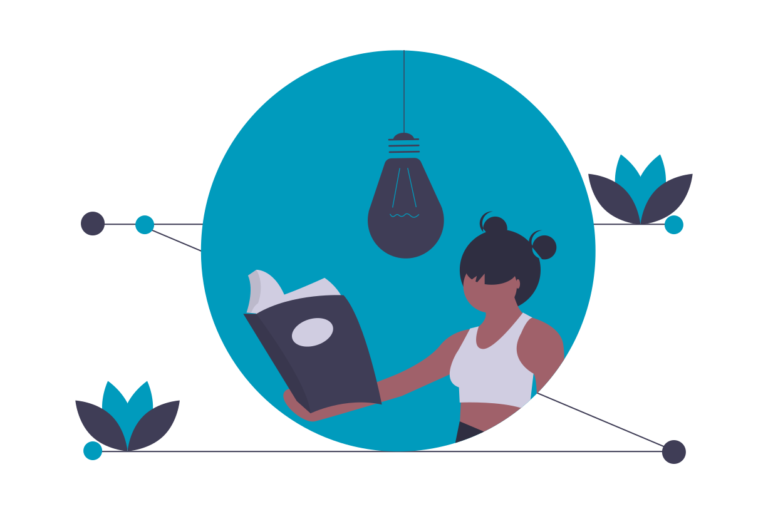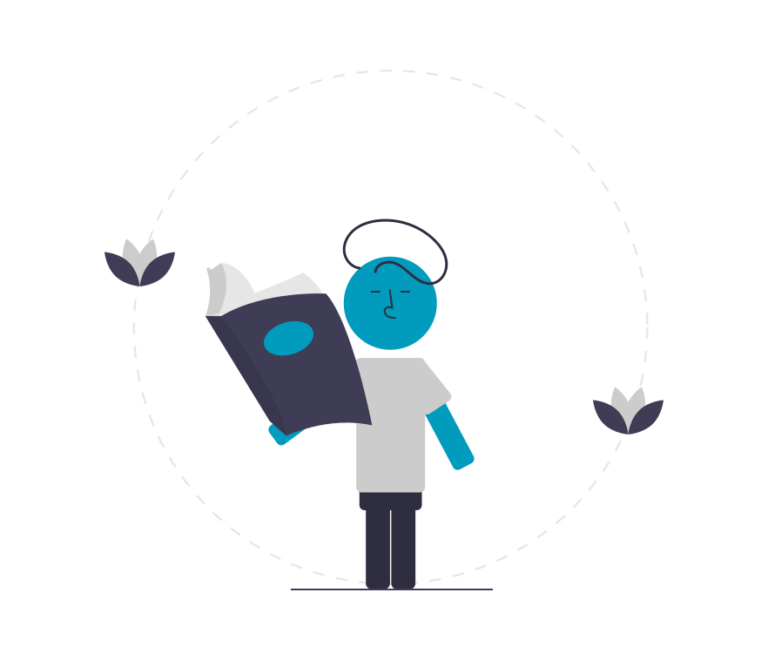Does purpose, genre and speed impact reading?

This is the second and final chapter about Academic Reading Skills. To complete this reader, read each chapter carefully and then unlock and complete our materials to check your understanding.
– To introduce the concept of reading purpose
– To connect reading purpose with genres of reading
– Explore additional aspects of reading, such as reading speed and dealing with new vocabulary
Before you begin reading...
-
video and audio texts
-
knowledge checks and quizzes
-
skills practices, tasks and assignments
Chapter 2
Having introduced the various skills and subskills of reading as well as some of the most common academic reading contexts, this second chapter in our reader on Academic Reading Skills focuses next on how a reader’s purpose for reading, their reading speed, the reading genre, and subject-specific topic all impact reading skills and success.
Are there different purposes for reading?
When completing a bachelor’s or master’s degree, and during life in general, you’re going to read a variety of different source types. Whether you’re reading a Tolkien novel, are flicking through the newspaper, or are focusing carefully on the information contained within an academic journal article, people read different source types for slightly different purposes and in slightly different ways. You may read a novel more slowly, stopping to imagine the situation or think more deeply about the ideas, whereas you might read a textbook more quickly, skimming and scanning for specific information, taking in as much detail as you can in a short space of time.

Generally speaking, there are three styles of reading, each of which is dependent on a reader’s purpose for reading that source. As can be seen in the table below, these are reading for leisure, reading for information and reading critically:

What genres will I read at university?
As well as adapting your reading style to suit your purpose for reading, it is also important that you consider the type of text you are reading so that you can read that text more efficiently. These text types are known as ‘genres’, the most common of which (in academic contexts at least) are listed below:
- abstracts
- book reviews
- case studies
- essays and theses
- fiction and non-fiction
- interviews and transcripts
- introductory textbooks
- journal articles
- literature reviews
- methodology sections
- newspapers articles
- primary data (questionnaires, diaries, etc.)
- reports
Each of these genres would need to be approached slightly differently if you wished to read them effectively. For example, a student should probably remember to reflect on the essays they read while studying at university, focussing on the structure and language used by the author should this language help them in their own writing – whereas there would be little value in analysing the structure of other written genres such as introductory textbooks or newspaper articles.

Such textbooks might however be approached in careful detail instead, with the reader comparing multiple textbooks on the same subject so that a solid conceptual and theoretical understanding could be gained before attempting more challenging texts like journal articles. When approaching very academic texts such as these, a student might wish to become adept at skim reading the journal article’s abstract, introduction and conclusion first, making sure that a particular publication is useful for their research before analysing its complex statistical data and quantitative / qualitative analyses.
How does this impact a reader’s core reading skills?
From the above, it is clear that how a student reads will vary depending on their purpose for reading, the genre of source they read, and the skills that are being used to approach that particular source. As was discussed earlier in this unit, skimming, scanning and intensive reading are three commonly used reading skills that assist students when interpreting and dissecting texts. When reading a newspaper for pleasure for example, you might skim the contents of that paper looking for something that interests you. When reading that same source informatively however, you might scan the newspaper’s tabloids and specific articles instead, looking for the scores in a football game or the latest election results. Yet scanning wouldn’t be enough if you were to use that newspaper in your academic research. For this purpose, you would have to read that paper intensively and critically, determining appropriacy of the source, author subtext in terms of its content, as well as levels of bias or political affiliation. What this demonstrates is that your purpose for reading, the genre of the source you have, and the reading skills you employ are connected and must all be considered.
Is the subject-specific context important?
In addition to the genre of text, what’s being described can also be a considerable challenge for readers. To fully understand a topic will not only require a wide knowledge of general-English vocabulary but also an increasingly expert knowledge of the facts, historical events and subject-specific vocabulary needed for that particular topic. While it’s of course true that the more knowledge a student possesses in advance of the reading, the better their comprehension will be, during some academic contexts such as examinations, there will always be some unknown information or words to deal with – and you may not always be allowed or have the time to check a dictionary or conduct online research. Ultimately, how you deal with such unknown subject-specific information will have an impact on the success of your reading. It’s therefore important that students develop strategies for what to do in these situations.
Does reading speed really matter?
One final factor that students often overlook in terms of reading success is reading speed. For the general public, speed reading isn’t necessarily an important skill. Everyone reads at their own pace, and unless you’re competing with a friend for how many novels you can read in a month perhaps, it’s likely that you’ll care little for how long it takes you to finish a particular book so long as you enjoy reading it. For university students however, reading speed is a more critical skill that must be practised to achieve academic success. There are five key reasons that you may wish to improve your reading speed:
- conducting research
- participating in lectures and seminars
- succeeding in timed examinations
- dealing with university correspondence
- scoring highly in proficiency tests
Hopefully, you now have a better understanding of what reading means in academic contexts, and how purpose, genre, skills and subject-specific context are all worth considering. For more information about how to improve reading speed as mentioned above, continue studying with our reading hub or course library.
Downloadables
Once you’ve completed both chapters in this short reader about Academic Reading Skills, you might then wish to download our Chapter Worksheets to check your progress or print for your students. These professional PDF worksheets can be easily accessed for only a few Academic Marks.
Chapter 1 explores the topic: Which reading skills are helpful at university? Our Chapter 1 Worksheet (containing guidance, activities and answer keys) can be accessed here at the click of a button.
Chapter 2 explores the topic: Does purpose, genre and speed impact reading? Our Chapter 2 Worksheet (containing guidance, activities and answer keys) can be accessed here at the click of a button.
To save yourself 1 Marks, click on the button below to gain unlimited access to all of our Academic Reading Skills Chapter Worksheets. This All-in-1 Pack includes every chapter, activity and answer key related to this topic in one handy and professional PDF.
Collect Academic Marks
-
100 Marks for joining
-
25 Marks for daily e-learning
-
100-200 for feedback/testimonials
-
100-500 for referring your colleages/friends